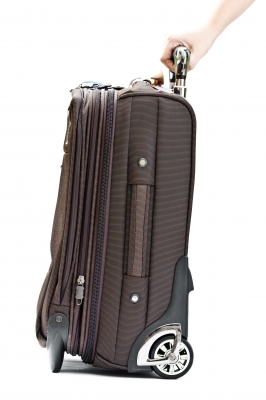Just because you or a loved one is diagnosed with Alzheimer’s or dementia doesn’t mean that he or she can no longer participate in meaningful activities such as travel. With careful planning to ensure safety, comfort and enjoyment, traveling can be a breeze for everyone involved.
Deciding to Travel
When taking a trip to see family or friends, it is important to consider the difficulties and benefits of the person to travel with dementia. While in the early stages of dementia, travel might still be fun, but as the disease progresses travel could become overwhelming. In deciding the best mode of travel, consider the person’s needs, abilities, safety and preferences of the person with dementia. Consider the following:
- Go with the option that provides the most comfort and the least anxiety.
- Stick with the familiar. Travel to known destinations that involve as few changes in daily routine as possible. Try to visit places that were familiar before the onset of dementia.
- Acknowledge that there will be a time when traveling is too disorienting or stressful for the person with dementia.
Tips for Safe Travel
- Changes in environment can trigger wandering, even a person in early stages, and a new environment can be difficult to navigate. Keep the person safe by taking precautions, such as enrolling in MedicAlert® + Alzheimer’s Association Safe Return®, Comfort Zone® or Comfort Zone Check-In®.
- Have a bag of essential items with you at all times including activities, snacks, water, your itinerary and change of clothes, as well as necessary medications, up-to-date medical information, a list of emergency contacts and photocopies of important legal documents.
- Give copies of the itinerary to emergency contacts at home, as well as keeping a copy with you at all times. Create an itinerary that includes details about each destination.
- Travel during the time of day that is best for the person with dementia.
- Do not be afraid to alert staff at the hotel of specific needs so they can accommodate you.
- If you plan to be in a place for an extended period of time, consider calling the local Alzheimer’s Association for resources and support.
When traveling, there are essentials that should always be carried with you at all times including:
- Doctors’ names and contact information
- A list of current medications and dosages
- Phone numbers and addresses of the local police and fire departments, hospitals and poison control
- A list of food or drug allergies
- Copies of legal papers (living will, advanced directives, power of attorney, etc.)
- Names and contact information of friends and family members to call in case of an emergency
- Insurance information (policy number, member name)
Air Travel
The level of activity while traveling through the airport can be overwhelming, distracting, or hard to understand for the dementia patient. Traveling by air requires attention and planning. Keep these things in mind if you decide to travel by air:
- Try avoiding flights with tight connections and ask airport staff to get you from place to place.
- Plan for extra time during all points of travel.
- Alert the airline team ahead of time and most will be able to accommodate any needs you may have.
- Even if walking is possible, request a wheelchair so airport staff can assist you in getting place to place.
Resource: https://www.alz.org/care/alzheimers-dementia-and-traveling.asp




